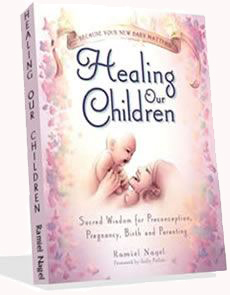At a recent well check-up for my middle child, I was asked why I declined to give my sons the MMR (measles, mumps, rubella) vaccine. I asked a simple question in return: Why should they get the MMR vaccine when it apparently doesn’t work?
According to a CNN report, there was a large mumps outbreak in New York last year, and a whopping . The Center for Disease Control (CDC) states that the MMR vaccine is only 76 to 95 percent effective – in other words, 5-24 percent of people immunized against mumps could still be at risk of contracting the disease, but in reality the number of people still contracting the disease is far greater. I re-read that part of the article a few times to let the numbers sink in.
 That was the moment I realized vaccines were not nearly as effective as I was led to believe. While I knew vaccines weren’t 100 percent effective and required multiple doses to reach optimal levels of antibodies, I did not expect the effectiveness to be below 90 percent. Seventy percent of immunized people catching mumps is a far cry from the estimated 5-24 percent.
That was the moment I realized vaccines were not nearly as effective as I was led to believe. While I knew vaccines weren’t 100 percent effective and required multiple doses to reach optimal levels of antibodies, I did not expect the effectiveness to be below 90 percent. Seventy percent of immunized people catching mumps is a far cry from the estimated 5-24 percent.
In fact, it’s so far off the mark that the only possible conclusion is that the vaccine doesn’t work. And if it doesn’t work, then why take it? The doctor’s response was I should reconsider because the MMR has been proven to be one of the “safest” vaccines available.
Even if I set aside all the controversy around the safety of the MMR vaccine, and pretended it was safe (which I definitely do not believe to be true), being “safe” doesn’t answer my question of “does it work?” If I were sick with say, an ear infection, I can guarantee you I wouldn’t take something that didn’t relieve the pain no matter how safe it was. Vaccines should be no different. If it doesn’t actually protect children from the disease, then why bother giving it to them?
Mumps is not the only disease that has had outbreaks among the vaccinated population. In 2010, California experienced the . Over 1000 people in nine different counties tested positive for whooping cough. Within those nine counties, 44 to 83 percent were vaccinated and STILL caught the disease. State officials report the whooping cough vaccine to be 85 percent effective, but again, the actual numbers show it to be far less effective.
These are only two examples of outbreaks among vaccinated populations. A simple Internet search on vaccine outbreaks will return numerous articles from well-known newspapers reporting on immunized people catching various diseases over the last several years.
My next question to the doctor was, “Why don’t the vaccine fact sheets provided by your office include the expected effectiveness of the vaccines?” A vaccine’s effectiveness is an enormously important and necessary piece of data needed to make a truly informed decision regarding immunization. If we don’t know how effective a vaccine is, how are we supposed to weigh up the risks and benefits of the vaccine? She unfortunately did not have a good answer for that question either.
If a vaccine works, then the drug companies and doctors should have no problem telling parents its effectiveness up front. Could it be they are worried that revealing a vaccine’s effectiveness might convince undecided parents not to vaccinate their children? I certainly reconsidered once I realized that, in addition to all the controversy around the safety of the MMR vaccine, its effectiveness is also far less than promised.
My parents have always stressed letting the facts speak for themselves, and from what I’ve read to date, the facts all lead to the same conclusion – vaccines are not effective and sometimes the results are severe life-changing conditions. There simply is not enough benefit to justify the risks of vaccinating my children.
Here you can learn more about the dangers of vaccines. Take charge of your family’s health by saying no to vaccinations.


















